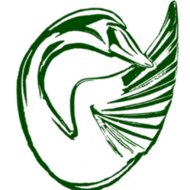School Health Service
Orkney Health and Care provides an Orkney-wide school health service to all school-age children and young people, to promote their health and wellbeing, and to provide them with information to make informed decisions on lifestyle choices. Our aim is that children and young people are as healthy as possible so they can gain the most benefit from their education, and that they will make healthy choices and therefore reduce the incidence of ill health in the future.
The service undertakes routine screening and are involved with child protection, health surveillance, health promotion and education, Human Papilloma Virus (HPV) vaccination and 1:1 support and advice. It can help any parents with parenting, through the Triple P Positive Parenting Programme, and help children and young people overcome bedwetting.
It also provides advice and support to education staff and deliver training on many health conditions that impact on childhood e.g. asthma, epilepsy and allergies. It supports and coordinates paediatric clinics and acts as a link between consultants and parents / carers and children.
The School Nurse Team covers all schools in Orkney and comprises a public health nurse (specialist practitioner), registered nurse and healthcare support worker who are based in the School Health Department at the Kirkwall Health Centre Annex. Pupils, parents / carers can request information and advice at any time. Other health professionals and teaching staff can also request advice and input from the school nurse for a child with parental and / or the young person’s consent.
- Health screening – the School Nurse Team offers health screening to all P1 and P7 pupils in Orkney schools. Health screening will not be done without parent/carer consent.
- Immunisations – Secondary school girls are offered HPV immunisations. At the appropriate time information booklets and consent forms will be issued. Immunisations will not be done without parent/carer consent.
- Health Education and Promotion – The School Health Team has an important role in encouraging healthy lifestyles, working closely with teaching staff, pupils, parents / carers and the community.
The School Health Service can be contacted on 01856 888262 or at ork-hbschoolnurses@nhs.net.
Infectious Diseases
Colds, flu and gastroenteritis are the most common infections affecting children of school age. It is important that you keep your child off school if they are unwell and for 48 hours after they stop vomiting or diarrhoea.
It is also important that your child understands how to prevent picking up and spreading such infections. Good, effective hand washing is the one easy solution to preventing the spread of germs.
You will be able to get further advice about good health from staff in your health centre or GP practice.
For advice about early detection and treatment for other infectious diseases eg chickenpox and mumps, please consult your GP or nurse.
Head Lice
The following is advice from the authority to parents on head lice, their treatment and prevention.
Head lice are spread through head-to-head contact at home, while playing, or in school.
Wet combing of your child’s hair using a head-lice detection comb is the best way to detect and treat at an early stage and prevent the spread of head lice to family members and to other children and adults. Checking for head lice by wet combing should become a normal weekly routine.
The only way to be sure that your child has head lice is to find a live louse. If you find live lice, get the correct lotion from your doctor or pharmacist.
One treatment is two applications of the treatment lotion, seven days apart. If this is not followed then re-infection is likely.
Advise family members and close friends that your child has head lice and that they should check their own hair. Only treat if live lice are found. Don’t be shy about advising others of this possible problem, as you would tell family and friends about other infections which might affect them.
Further advice can be obtained from the Health Board head lice leaflet which is available in all schools and health centres. If you would like to discuss your particular concerns, you could speak to your GP.
Clinics and Appointments
From time to time some children must attend external appointments (eye clinics, dentist, doctor, etc) during the school day. Please inform the school of these visits and arrange for your child to be collected if he / she must leave school to attend the clinic.
No child will be allowed away from school during school hours unless accompanied by a responsible adult or unless written permission to do so has been given by the parent.
Medicine Administration
If pupils require medication to be administered at school, parents must contact the school office and complete a standard form stating the name of the medication, dosage, time of administration and permission for staff to supervise. School staff can only administer medicine that parents provide. Prescription medicines must have the dispensing chemist’s prescription label on it, clearly detailing that it is the child’s medicine.
